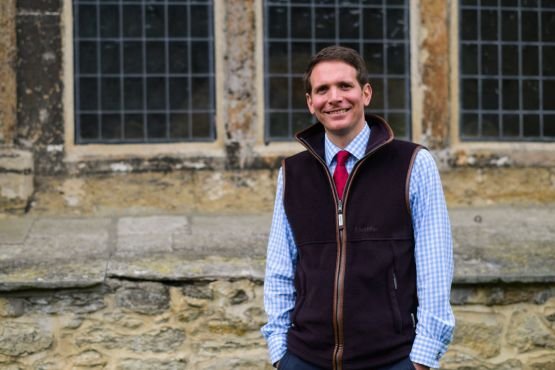The role of an Estate Manager in the National Trust can be different to working in private practice. With a chance to get involved in all aspects of The National Trust, an Estate Manager’s working day can vary greatly from week to week.
We caught up with George Upex, Estate Manager for London and The South East region, to discuss his role and why he continues to be enthusiastic every day.
George, you’ve worked in private practice, why did you decide to work for the National Trust?
I get asked that question all the time and my answer is always the same; why wouldn’t I want to work for the National Trust? Working here has to be one of the most diverse and rewarding jobs in rural surveying.
The National Trust is one of the largest landowners in the UK, we look after around a quarter of a million hectares of land, over 25 thousand hectares of woodland, and 775 miles of coastline. It’s a big job and we have a dedicated team cross the regions all working for the same purpose: the conservation of the land for the Great British public and future generations.
Can you tell us a bit more about the variety of land?
We have a really varied portfolio, no property firm in the country can boast clients that have such a diverse range of properties. For example, the Trust owns 1,800 farms across the country, and we also own around 60 pubs. Two vastly different assets but both managed by the Estate Management team. The public will probably be more familiar with the 41 castles we look after.
Alongside our land and historic houses, we manage around 2000 commercial buildings and over 5,000 residential buildings. We use the income generated from these to cross-finance our conservation work.
How does the National Trust decide which land to purchase?
Sometimes we are gifted land and properties, other times we decide to buy land for conservation reasons. A great example recently was our bid to buy land around the White Cliffs in Kent. At £1.8million, it was a huge undertaking, but we raised enough money to buy the land in order to keep it as a heritage asset and look after it for the nation.
The British public have a great love and affinity with the land the Trust owns, from holidaying to walking, exploring and being part of the land, it’s very humbling to be part of something so special.
Sounds like a great range of initiatives, more than just rolling countryside?
Absolutely not, I don’t think the public generally realise how diverse our portfolio or our work really is! For example, one property quite close to my heart is The George Inn, a small pub in the shadow of The Shard in Central London. Visited by Charles Dickens when it was a coffee shop, The George Inn is one of the last surviving examples of a galleried Inn in the UK. We don’t run it in hand but we work really closely with the Lessee.
How does the National Trust work on a commercial level as a landowner?
We use the commercial assets we have to cross-finance our conservation aims. Getting involved in every aspect of the strategy, the Estate team deliver on the ground and work with our commercial partners to ensure financial success.
A big part of the Estate Manager role is to ensure that our commercial assets are successful. We work with our tenants and employees, keeping them happy and ensuring their businesses are a success, this means success for us.
It’s a strong chain. Quality Estate Management really adds value to the Trust’s assets.
On a personal level, it’s about making sure people on the ground are happy. If people have the support and what they need to be successful they will thrive and do well.
What does a day in the life of an Estate Manager look like?
It really is varied and no two days are the same. One day I can be reporting the financial performance of our Estate and the next I can be out getting soaked with the ranger team checking on boundary issues.
In common with all land agents, it’s about having a broad set of skills you can draw upon.
In private practice, it’s very easy to become pigeonholed and stick to the same thing, valuation for example, and not really have a chance to branch out. With the National Trust you can get involved in every aspect.
Finally, what inspires you to continue working at the National Trust?
It’s a really diverse and rewarding role. Every day is different, and it’s nice to work with genuinely passionate people.
The landscape inspires me; you can’t help but smile when this is your office for the day! I don’t think there’s anywhere else in the world where you get to work in places like this. Having the ability to influence a small part of what goes on and knowing that what you’re doing is being held in perpetuity for the nation, it’s really rewarding.
You have to have an affinity for what the National Trust stands for and what we’re trying to achieve. Essentially, it’s trying to make a difference to the countryside which the Great British public have a great attachment to.
Find out more about the role of an Estate Manager and other Countryside Management roles with us.
NB: This blog was written by myself from an interview with Geroge Upex and published on the National Trust Jobs Website. The photograph of Geroge was taken by me also.
